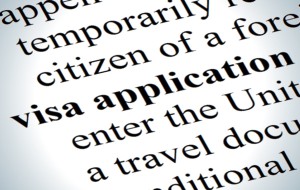Finding a lawyer at the best of times is difficult, but when immigration and citizenship is involved it can seem so much harder. Here are some tips to get you started:
Knowledgeable:
This is key when you are in the market for any lawyer, obviously, but it is so important it bears listing first and foremost. Law practice is complex, and laws are added, amended, changed, or made obsolete every day. It is important that they not just understand the law as they knew it when they passed the bar, but the law as it stands today, with all the changes that have taken place. Also key is making sure that your lawyers is trained in the specific laws of your state, as many laws vary based on location. If your lawyer doesn’t have the right information he or she can’t provide you with the best legal representation.
Resources:
Your State Bar, National Immigration Law Center, American Immigration Lawyers Association are all good places to start. Your local state bar will be able to connect you with licensed lawyers in good standing, and point you in the direction of specialty practice if you have specific needs. NILC is a non-profit organization devoted to assisting low-income individuals with immigration services they can afford. AILA is a national association of attorneys and legal experts who can teach and/or practice immigration law, so this is a good place to begin a search and feel good that you are finding someone well-versed in immigration policy. An AILA membership is not required to practice immigration law, so membership can show that they have dedicated themselves specifically to the practice.
References:
Ask friends, coworkers, family, or anyone else you know if they know an immigration lawyer. Even if they haven’t been through immigration processes themselves, they may know someone who has, or have heard of a success story in your area. People love to talk about good experiences, and love to talk about bad ones even more. Word of mouth, online reviews, and references from clients of the lawyers are all helpful when beginning your search. When you interview your lawyer, make sure to ask them for references from former clients, a reputable lawyer should be happy to introduce you.
Speaks Your Language:
Literally and figuratively. It is important that you fully understand your lawyer and that they understand you. Multi-lingual immigration lawyers exist is most places, and it is important to make sure that they are fluent in the language you speak natively. It is also important that you speak with them in person, trust them, and feel comfortable putting your future into their hands, so make sure that your personality and goals as client and lawyer are a good match. Honesty is key, and so is communication. Make sure that they are willing to educate you on your case so that you full understand their responsibilities, and your own.
Costs:
Make sure that you understand the fees and costs. Some attorneys charge hourly fees while working on your case. Some charge a fee per task, set in advance. Some charge one single fee for the entire case, beginning-to-end. Make sure that you understand the pricing of your lawyer, and that you compare prices of more than one attorney to ensure you get one that fits your budget.
